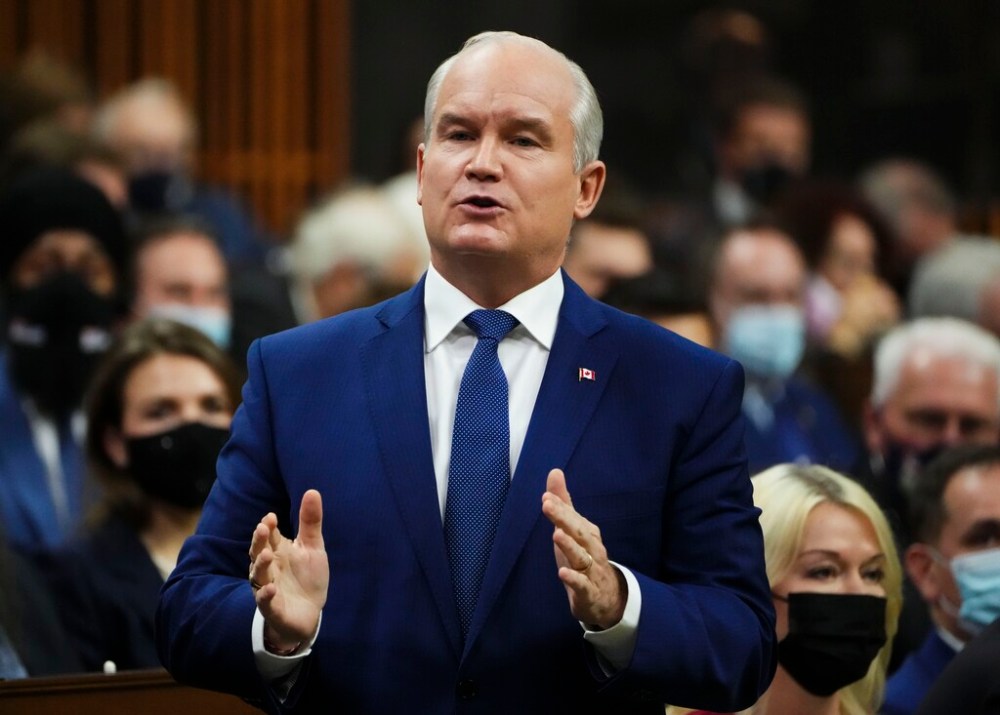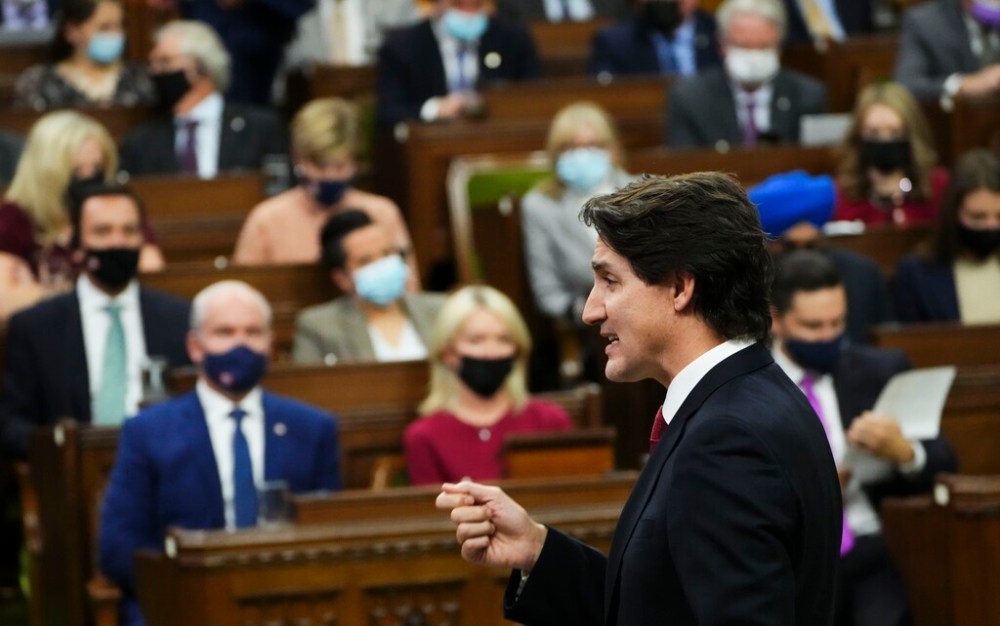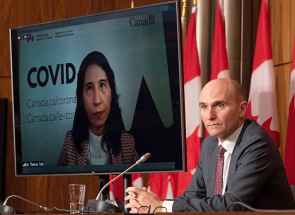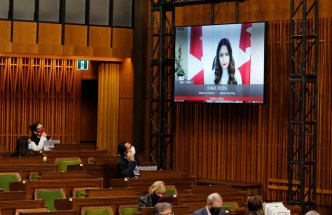Parliament on bitter, dysfunctional path
Read this article for free:
or
Already have an account? Log in here »
To continue reading, please subscribe:
Monthly Digital Subscription
$0 for the first 4 weeks*
- Enjoy unlimited reading on winnipegfreepress.com
- Read the E-Edition, our digital replica newspaper
- Access News Break, our award-winning app
- Play interactive puzzles
*No charge for 4 weeks then price increases to the regular rate of $19.00 plus GST every four weeks. Offer available to new and qualified returning subscribers only. Cancel any time.
Monthly Digital Subscription
$4.75/week*
- Enjoy unlimited reading on winnipegfreepress.com
- Read the E-Edition, our digital replica newspaper
- Access News Break, our award-winning app
- Play interactive puzzles
*Billed as $19 plus GST every four weeks. Cancel any time.
To continue reading, please subscribe:
Add Free Press access to your Brandon Sun subscription for only an additional
$1 for the first 4 weeks*
*Your next subscription payment will increase by $1.00 and you will be charged $16.99 plus GST for four weeks. After four weeks, your payment will increase to $23.99 plus GST every four weeks.
Read unlimited articles for free today:
or
Already have an account? Log in here »
Hey there, time traveller!
This article was published 26/11/2021 (1479 days ago), so information in it may no longer be current.
After a bitter federal election campaign, and an equally bitter period of jockeying among the parties to stabilize a Liberal minority government, we enter — unsurprisingly — a very bitter session of the House of Commons.
This week, pre-session and session debate was eclipsed by a Liberal proposal to allow parliamentarians to participate in debates and votes virtually while COVID-19 continues to be a concern.
The House of Commons operated in hybrid fashion for most of the pandemic when Parliament was in session, but now, in the wake of a cantankerous fall election that almost nobody wanted and the Liberals narrowly won, a return to a hybrid Parliament erupted into controversy.

Conservative Leader Erin O’Toole and Bloc Quebecois Leader Yves-Francois Blanchet led the charge against a hybrid Commons, arguing it would make it tougher to hold the Liberal government to account. Fresh from a battle with his own MPs to ensure all were fully vaccinated, O’Toole felt that hybrid proceedings were an unfair advantage for the government.
“What are the Liberals afraid of?” O’Toole thundered. “The answer is obvious. Justin Trudeau has an aversion to accountability.”
Ultimately, the Liberals and NDP had enough votes to move forward in hybrid fashion. Still, the debate failed to answer a key question that O’Toole and others had raised: does a hybrid legislature really erode government accountability?
That question assumes in-person legislative sessions improve or sustain accountability. And for anyone who has watched proceedings in the federal or provincial legislatures, that is a tenuous assertion.
Debates over motions or bills have largely become non-events, at least as far as journalists and the outside world are concerned. Most of the attention is focused on question period which, in recent years, has demonstrated questionable probative value.
QP, as we call it, typically starts with an opposition party leader or MP asking a rhetorical question that is followed by a mostly rhetorical answer.
Leader of the Opposition: “Mr. Speaker, I’d like the first minister to tell me why his government is so stupid?”
First Minister: “Given that the opposition leader’s party is way more stupid, I have trouble taking that question seriously!”
And so on.
All things being equal, it is accurate to say that accountability has been diminished by the pandemic and the limits that it has placed on parliamentary proceedings, but not in the way O’Toole and Blanchet would have us believe.
Fewer in-person sessions means less interaction with other parties and MPs, but it also means less contact between journalists and politicians. Given that politicians have allowed parliamentary debates and question period to devolve into partisan screaming matches, the exchanges between journalists and politicians have much greater potential to produce accountability.
Although not every reader will accept this claim, all you need to do is compare the quality and tone of the question being asked in a typical news conference against the questions being asked by opposition MPs to government ministers in question period.

Neither forum is completely unbiased. However, it’s hardly a stretch to say most citizens get far more information and see far more unscripted responses in news conferences than in question period.
Which brings us to the issue of news conferences. Like parliamentary proceedings, government news conferences have been seriously impaired by the pandemic.
In Manitoba, the virtual news conference and the insistence that each journalist can only ask “one question, and one followup” has provided cover for politicians and senior government officials. In short, if they don’t answer a question, we don’t get a chance to hammer them until they do.
The current news conference format means journalists face a dilemma: if someone fails to answer a first question, do we use the second question to force the politician/public health official to produce a better answer, or move on to a different question altogether? You’ve got to be very lucky to get a direct answer to a direct question these days.
But that is not the only way government accountability has been compromised. Daily scrums — where politicians are surrounded by journalists and bombarded with questions — are inconsistent with the best practices of social distancing. These confrontations are where journalists get their best information, and where politicians show their resilience.
The Tory government in Manitoba does provide some of its ministers at a lectern following question period, but the physical distancing between politician and journalist definitely makes it a less intense, less productive interaction. Government communicators do issue email statements in response to queries by reporters, which provide less information than question period.
Government accountability has definitely weakened during the pandemic, but it’s not clear virtual participation by elected members is the biggest cause. It is, in general, harder to get government officials — both elected and non-elected — to provide definitive answers to pressing questions.
The federal Liberal government does avoid a measure of grief by having fewer MPs in the House of Commons. But if the Tories and BQ want to make a stronger case that in-person participation improves accountability, they have to demonstrate that accountability — and not political rhetoric — is their main goal.
dan.lett@freepress.mb.ca

Born and raised in and around Toronto, Dan Lett came to Winnipeg in 1986, less than a year out of journalism school with a lifelong dream to be a newspaper reporter.
Our newsroom depends on a growing audience of readers to power our journalism. If you are not a paid reader, please consider becoming a subscriber.
Our newsroom depends on its audience of readers to power our journalism. Thank you for your support.








